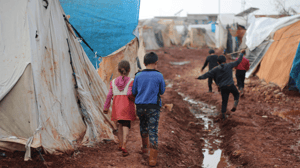Youth and young adults rarely come to mind when we think of homelessness. Caseworkers working full time with the country's homeless population tell us that homelessness among young people is largely out of sight.
Youth homelessness looks different because it is fluid and hidden. A recent national study found homelessness in 1 out of 30 youth aged 13 to 17 and 1 out of 10 young adults aged 18 to 25. Youth homelessness often remains in the shadows because it may involve couch hopping with friends by a young person who goes from household to household without a choice and is subject to dismissal or exploitation. Young people experiencing homelessness include parents with young children, youth met with rejection after disclosing their sexual orientation or gender identity, and youth who ran away from a foster home or “aged out” of foster care.
One does not have to experience homelessness to understand that it presses hard; the energy and will required to attend to basic survival does not leave much room for vocation, education, or aspiration. It is no wonder that young people experiencing homelessness are less likely to graduate from high school, attend college, and succeed in higher education.










